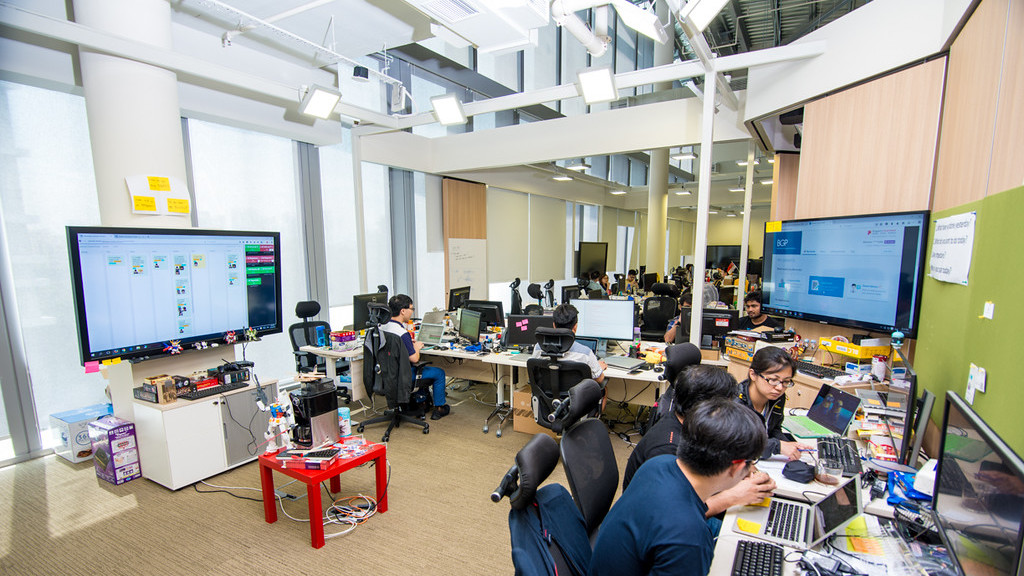“Can you dabao McDonald’s home for your dad?”
I felt my palms get sweaty and my heart beat faster as I read the text from my mum on the way home from school one day. Should I think of an excuse to not do so? Maybe tell her I don’t have enough money to buy dinner for my dad?
Surely ordering a McDonald’s meal over the cashier wasn’t that difficult. And yet, the thought of having to talk to a stranger left me in a cold sweat. What if I messed up the order? What would the cashier think of me? I hated how these thoughts would consume me at every step of the way. Why couldn’t I be like the other kids? All I wanted was to be normal.
LEARNING ABOUT SOCIAL ANXIETY
Whenever my friends ask me, “Why you don’t wanna join us? Don’t be so anti-social leh,” I wish I could’ve told them that it’s not that I didn’t want to hang out with them, I was just afraid that they wouldn’t like me.
Or when my secondary school teacher gave me feedback that went something like, “You’re too shy in class and should open up and take part in class discussions more,” I wish I could’ve told her that it’s not that I didn’t want to participate more in class, I was just afraid of the humiliation from answering questions wrongly. Would I become a laughing stock? And if I get it right, would they think that I’m just showing off?
In school, I pretty much kept to myself most of the time and I didn’t have a lot of friends.. To an outsider, I was shy and introverted. I guess I came across as antisocial at times.
Because everyone kept calling me shy, I believed that that’s all that it was. But no matter how much I tried to break out from my “shyness”, I couldn’t.
One day, my friend noticed that I would get panic attacks before class presentations. My heart would race faster and cause a lump in my throat that made it difficult to breathe. She encouraged me to talk to the school counselor.
My school counselor was the first person to tell me that I may have social anxiety disorder. She referred me to a psychiatrist, who diagnosed me with it.
I was finally able to rationalise everything I had been feeling for the better part of my life. However, I also came to realise that it is much easier to let people think that I was just ‘shy’, because when you start telling someone that you have a mental condition, chances are you’d have to start explaining why you feel certain things—how do I explain feelings that I don’t even want to have myself?
Admitting that I had social anxiety to other people was the most difficult part of coming to terms with my mental health. The first time I told someone about my social anxiety, they said: “Huh isn’t that just social awkwardness? I also have!”
I couldn’t blame them for reacting that way but hearing that from friends was still pretty hurtful. It made me feel that what I felt or thought didn’t matter. Them brushing me off made me even more resistant to tell anyone else about it.
Even today, my parents are unaware of my social anxiety. Growing up, I’ve felt the disdain my parents’ have towards mental issues through the passing remarks they make about mental health patients being “attention-seeking” and “weak”.
Because of this, I hid the fact that I had social anxiety to myself. And for the most part of my teenage years, social anxiety controlled my life because I didn’t dare to speak to anyone about it.
WHAT DOES SOCIAL ANXIETY FEEL LIKE?
Social anxiety is not being able to answer questions in class because I was scared of what my classmates would think of me.
Social anxiety is having my heart race 10 times faster when I hear the telephone ring, and then having to rehearse exactly what to say before answering it.
Social anxiety is the constant fear of having my friends talk about me behind my back, because in my mind, I'd keep thinking that they don’t actually like me.
Social anxiety is listening more than talking in group discussions because I’ve convinced myself that my opinions don’t matter, and that I will just be looked down upon.
It decided what I did and didn’t do, and this constant self-doubt and fear got so bad that it created limitations that hindered my everyday life. No matter how illogical the thoughts I had were, I would constantly find reasons to avoid situations that could trigger my social anxiety in the slightest way.
Back when I was on an internship, I called in sick on the day that I was supposed to head for a meeting at another office. The thought of facing the unfamiliar and embarrassing myself in front of my boss and associates scared me. It wasn’t just the nerves either. I genuinely feared the consequences of failure. In my mind, this just kept replaying: “If I mess this up, my boss would hate me and my entire six months of internship would become a nightmare.”
Slowly, I realised that I was letting my social anxiety influence my day-to-day decisions. I had let it consume my life in a lot of subtle ways and there was a point I thought I would never be able to overcome my social anxiety.
For years I ignored having to deal with it. I stupidly thought that ignoring it would somehow make the problem go away. But I realised that it was impossible to avoid situations that could trigger my social anxiety forever. After all, I’d have to meet people everyday, be it at work, in school or in public, I would always be surrounded by people. And with that, I would always be scared of what the people around me were thinking of me.
LEARNING TO RIDE WITH IT
When I joined the workforce at 23, I found that the people around me were a lot more open-minded and accepting, contrary to the people I’ve met in school or at home. That made me comfortable in opening up about my social anxiety.
For the most part, having social anxiety means putting up an act everyday, because it’s difficult for someone else to recognise this disorder, or differentiate it from merely being shy. But finally being able to openly talk about it and realising that there are other people out there who can relate to my struggles made me feel less alone.
I would be lying if I said that I don’t get sweaty palms anymore when I get an unexpected phone call or if I have to share my thoughts to a group of people. And I still often struggle with the habitual thoughts that my friends or colleagues are speaking ill of me whenever I hear them whispering near me.
Social anxiety is probably something that I will never ‘get rid of’ completely, it’s every McDonald’s order, every first conversation, every phone call to a stranger, that has helped me get better over the years.
I’ve come to accept that my social anxiety will always be a part of me and that I should grow with it, instead of against it.
Also read: 8 Singapore Shared Snapshots Of What Depression Was Like For Them
(Header Image Credit: Budagchin Erka)



